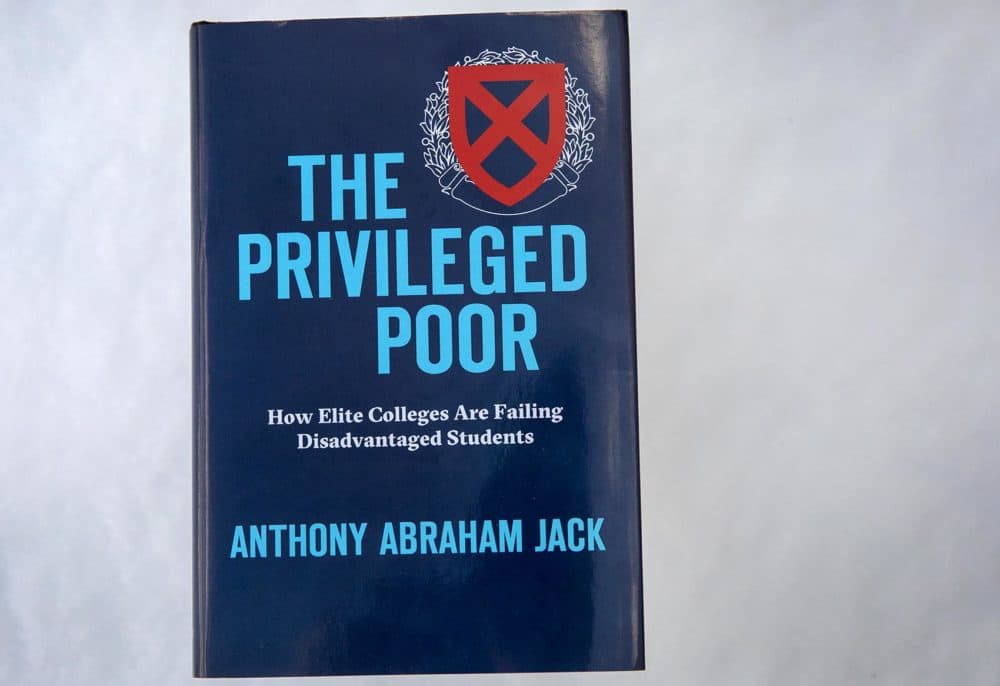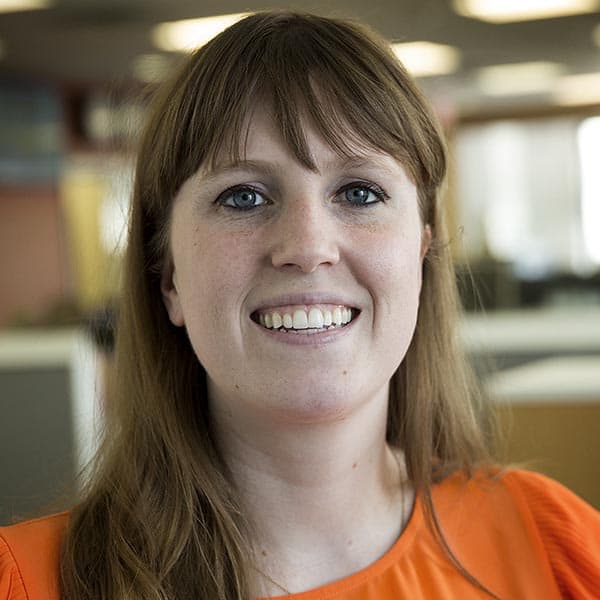Advertisement
What Does It Mean To Be A Poor Student On A Rich Campus?
Resume
What does it mean to be a poor student on a rich campus?
That question is at the center of a new book by Anthony Jack, an assistant professor at the Harvard Graduate School of Education.
In "The Privileged Poor: How Elite Colleges Are Failing Disadvantaged Students," Jack peels back complex layers of poverty, privilege and inclusion.
Elite universities, he writes, "bend over backwards to admit disadvantaged students, but then, once the students are there, they maintain policies that not only remind those students of their disadvantage, but even serve to highlight it."
Guest
Anthony Jack, an assistant professor of Education at the Harvard Graduate School of Education. He’s also a junior fellow at the Harvard Society of Fellows.
Interview Highlights
On what he means by "privileged poor"
It came up in my research that one half of the lower income black students — like myself — actually graduate from boarding, day and preparatory high schools like Andover and Exeter. So, even though we come from impoverished backgrounds, we were very low income, our parents tend to have not gone to college and work in low wage jobs, we got access to private schools. But not just the private schools, the educational experiences of the top 1 percent. Some schools allow study abroad programs, you have friends who come from very wealthy families and sometimes you also get invited on those private jets or those summer vacations ... You're the beneficiary of more than just the academic training that those schools provide."
"It's an oxymoron, and it's purposely so. I want people to ask that exact question: How can someone be both privileged and poor?"
Anthony Jack
On the use of classed terms on campus that can serve as a barrier to certain students
"'Office hours,' like many things on a college campus, is a very classed term. You probably heard the term office hours if you fall in one of three categories. Either your parents went to college, you went to a certain type of high school or ... you had access to one of those programs that previewed it for you, like at some of the boarding schools there were summer programs that were doing different things like that. And so 'office hours,' like 'fellowship' and 'Winternship' and even 'syllabus' — some of those things that we take for granted — are very, very classed terms."
On how food insecurity can develop for students due to dining hall closures during breaks
"I think dining halls highlight — the dining hall closures, specifically — highlight the difference between access and inclusion. Many universities have opened their campuses and offered generous financial aid packages. But those same universities, I found only 1 in 5 actually keep their dining halls open during spring or Thanksgiving or different kind of recesses that colleges have ... The reality is many students become food insecure during those breaks. They have no idea where their next meal is coming from. And what students do is, they make tough decisions about how to make ends meet. One student told me, 'I go to Family Dollar and buy everything that I can afford that I can then microwave' because he doesn't have a fridge to put his food in. Or some students steal food from their own dining halls, oftentimes with the help of cafeteria workers to actually be able to have something to live off of or to bridge the gap between what they can buy and what they can steal. And that's literally built into the very structure of the college calendar."
On the difference between access and inclusion
"We need to question what we take for granted. I think universities, particularly selective universities, have so long catered to wealthy individuals — people from wealthy families — and then when they did diversify, they typically diversified from students who went to wealthy schools, both who are full-pay and scholarship. So they are slower than they should be from making that move from access to inclusion — making intentional steps to not only promote belonging but making sure students make the most of their time."
"We have to look at how poverty and inequality shapes not only the path to college but also the path through."
Anthony Jack
On how the problem starts in neighborhood primary schools
"We have to look at how poverty and inequality shapes not only the path to college but also the path through. And I hope that my research, even though I studied the elites, pushes us to think about how education policy has to be about neighborhood inequality, school inequality, before we even get to the post-secondary aspects of it because we've disinvested a lot with how we support our neighborhoods and how we support our schools."
To listen to the full interview, click the audio player above.
This article was originally published on March 07, 2019.
This segment aired on March 7, 2019.

